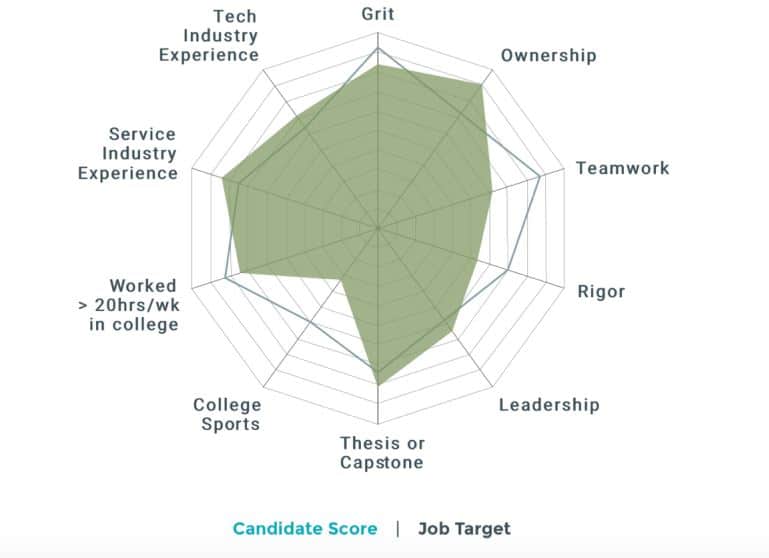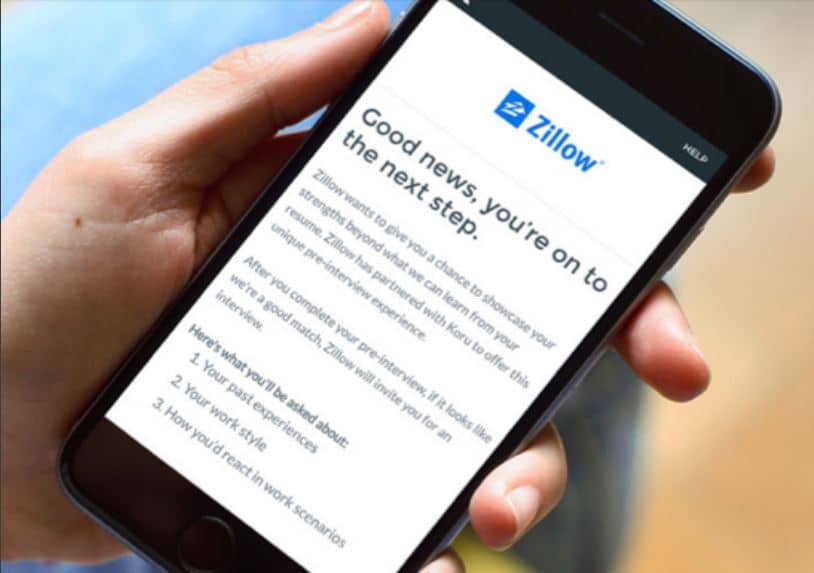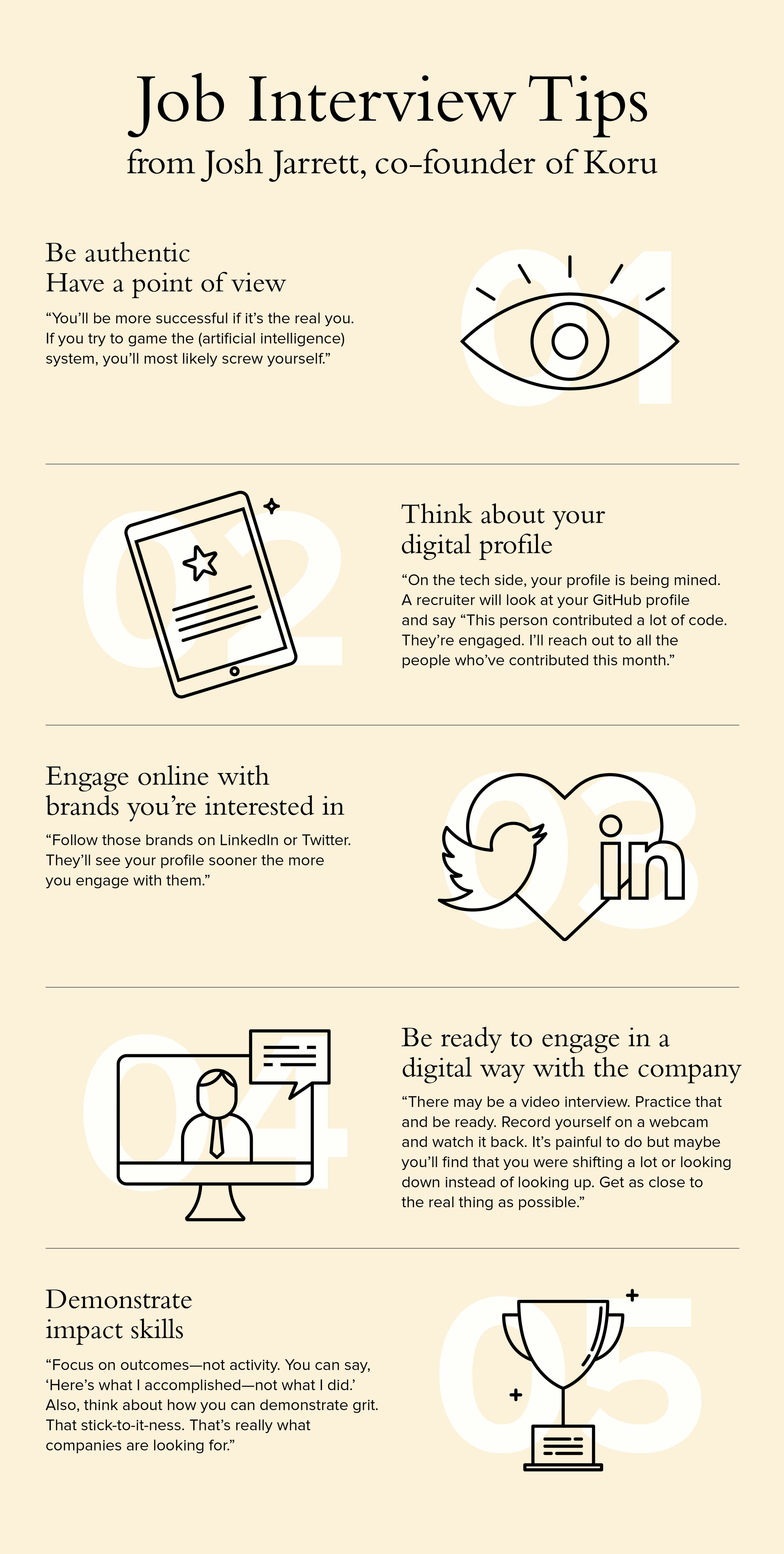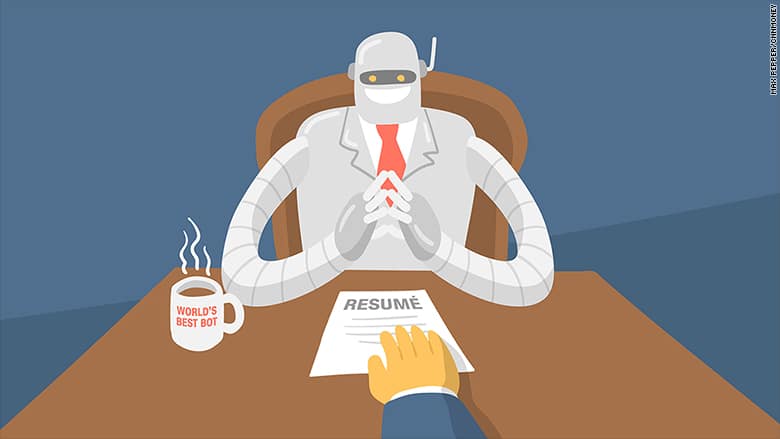More and more companies are turning to artificial intelligence in the job hiring process. Unilever. Urban Outfitters. Vodafone. The good ole fashioned resume just isn’t as relevant anymore.
“Turns out a lot of data on a resume is not predictive of future success,” says Josh Jarrett, co-founder of Koru, a predictive hiring startup based in Seattle.
A top priority for many employers is hiring someone who’s a good cultural fit for the company. To that end, companies are now asking AI firms to design algorithms to look for intangible signals such as grit or rigor. Depending on the corporate client, these algorithms can play a role at every stage in the hiring process: initial review of resumes, pre-interview questionnaires, and video interviews.
“Data analytics and predictive analytics on steroids is here to stay,” says Dr. Olaf Groth, Hult International Business School’s Global Professor of Management, Strategy, Innovation & Economics. “Artificial intelligence is coming—and coming faster than we’ve seen before.”
Data analytics and predictive analytics on steroids is here to stay. Artificial Intelligence is coming—and coming faster than we’ve seen before.
-Dr. Olaf Groth, Hult Professor of Management, Strategy, Innovation & Economics
Groth teaches Strategy, Futures, and Business & Global Society courses at Hult where the impact of AI is a focus. He is also co-author with Dr. Mark Nitzberg, Executive Director of UC Berkeley’s Center for Human-Compatible AI, of an upcoming book called “Solomon’s Code: Power and Values in the AI Revolution.”
The right fit
One challenge for employers is finding the candidate who adds diversity of thought yet gels well with a company’s culture. “Being a fit at Citibank is not necessarily the same fit for Barclays,” says Koru’s Jarrett. The startup has clients including Airbnb, e-commerce retailer Zulilly, and agriculture consulting firm K-Coe Isom.
One of the traits Koru’s corporate clients often look for is grit, but this is something that’s hard to measure. “There are ways to impute someone’s grit from their past roles and achievements,” says Jarrett. “We don’t start with the resume. We look for signals beyond the resume.”


The firm’s methods include a 20-minute online pre-interview, where the algorithms look for signs of collaboration and compare candidates’ responses to patterns of people who’ve been successful in the past.
Video interviews reveal 25,000 data points
Utah-based HireVue creates algorithms for video interviews and analyzes 25,000 data points, including facial expression, intonation, and word choice. Before you stress out about whether you’re blinking too much, HireVue Chief Technology Officer Loren Larsen says, “Do we count blink rate? No. The algorithms are noting things that matter. We don’t put labels like “fear,” “anger,” or ”lying.” We take all the data and run them through predictive algorithms. We’re looking for top performers and bottom performers.”
The company partners with multinationals like Unilever and Mercedes Benz. The algorithms are only as good as the data and parameters given by the corporate client. And this is where things can get tricky.
“We’ve declined making certain models because they propagate bias we’re uncomfortable with,” states Larsen. He says HireVue was once asked by an airline to design an algorithm for attractiveness in flight attendant candidates. “They wanted to bump the attractive ones to the top. We said we’re not doing that. Instead, we went back to the drawing board to find the other things that mattered.”


What happened to good chemistry?
Artificial intelligence saves a company time and money. No longer does an HR officer need to spend days sifting through hundreds of resumes. Machine learning can do the initial culling. But does this mean chemistry and a hiring manager’s intuition go out the window?
“In my opinion, AI is not about substituting humans at all. It’s about adding the possibility to succeed in terms of what humans do,” says Olga Maslikhova, managing partner of Phystech Ventures, which invests in early-stage tech companies using machine learning. “A lot of things in the hiring process have changed. There are more tools available. It’s more about the extension of capabilities—not a substitution of process.”
“There’s a balance. Both data and chemistry matter. Data has the opportunity to pair with human experience,” Koru’s Jarrett says, providing an example. “E-harmony is not going to find your spouse on the first date. It’s the same kind of thing. We say: ‘Here’s the probable solution. Now go make it happen.’”
We’re in this transition between traditional hiring and predictive hiring, blending data and human traits. We’re in the second inning of a 9-inning game.
-Josh Jarrett, Co-Founder of Koru
Monitoring the Wild West of AI
Artificial intelligence is pervasive. It’s not just used in recruiting and e-commerce. It’s also finding its way into the U.S. criminal justice system. Courts in Wisconsin and Florida use AI software to decide bail and sentencing based on algorithms that measure a defendant’s risk status or likelihood of committing a crime again.
Hult’s Professor Groth warns artificial intelligence is like the Wild West with no standard set of regulations. “We’ve got a lot of gunslingers out there who throw things at the wall to see if it sticks…until it doesn’t,” says Groth. “I am a techno-optimist. I believe AI has a vast positive transformational potential in society. In recruiting, it’s one valuable tool as we evolve our tool kit, but wherever we apply AI we need to ensure that humans are empowered by machines, not the other way around. We need to figure out how to monitor and govern it so it’s fair and transparent.”
Firms at the center of the AI revolution take a different tack. “Should algorithms be regulated? I struggle with that,” says HireVue’s Larsen. “I struggle with that because I don’t think science should be regulated by lawmakers who don’t understand science.”


Photography courtesy of Koru.
Lead image courtesy of CNN Money.
Find out more about Hult’s innovative program portfolio here.


Pauline Chiou is a contributing writer for Hult International Business School. She currently covers global business, news, and politics for CNN International as a freelance journalist based in New York. She spent nine years in Asia as an anchor for CNN in Hong Kong and CNBC in Singapore. Follow Pauline on Twitter @PaulineChiou.
Hult offers a range of highly skills-focused and employability-driven business school programs including a range of MBA options and a comprehensive one year Masters in International Business. To find out more, take a look at our blog Hult launches first-of-its-kind job skills tool: Dream Job Mapper. Download a brochure or get in touch today to find out how Hult can help you to learn about the business world, the future, and yourself.


